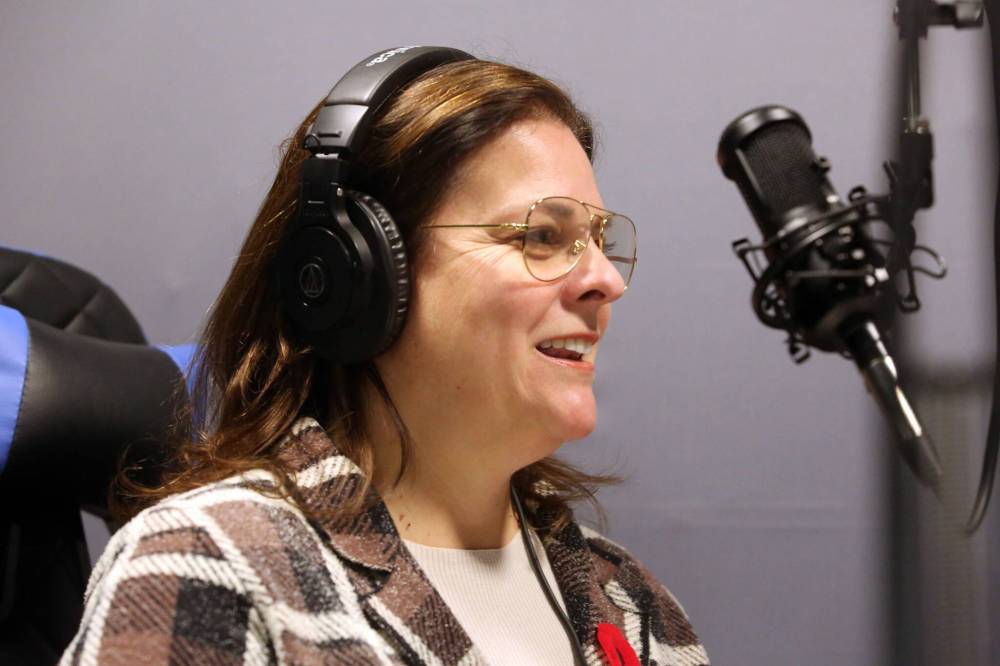Stefanson unable to reverse Tories’ fortunes in 2022
Advertisement
Read this article for free:
or
Already have an account? Log in here »
We need your support!
Local journalism needs your support!
As we navigate through unprecedented times, our journalists are working harder than ever to bring you the latest local updates to keep you safe and informed.
Now, more than ever, we need your support.
Starting at $15.99 plus taxes every four weeks you can access your Brandon Sun online and full access to all content as it appears on our website.
Subscribe Nowor call circulation directly at (204) 727-0527.
Your pledge helps to ensure we provide the news that matters most to your community!
To continue reading, please subscribe:
Add Brandon Sun access to your Free Press subscription for only an additional
$1 for the first 4 weeks*
*Your next subscription payment will increase by $1.00 and you will be charged $20.00 plus GST for four weeks. After four weeks, your payment will increase to $24.00 plus GST every four weeks.
Read unlimited articles for free today:
or
Already have an account? Log in here »
Hey there, time traveller!
This article was published 30/12/2022 (1053 days ago), so information in it may no longer be current.
Premier Heather Stefanson and her Progressive Conservative Party’s efforts to turn their political fortunes around in 2022 did not end well. They closed the year with virtually the same level of public support they had 12 months earlier — well behind the opposition NDP, and nowhere near the threshold required for re-election.
Despite the phasing out of COVID-19 pandemic restrictions and an economic recovery that saw the province’s jobless rate fall nearly a full percentage point to 4.4 per cent, Ms. Stefanson’s government remained at 35 per cent support in December 2022, according to a Probe Research Inc. public opinion poll.
It was little changed from the 37 per cent support the Tories had a year earlier, and still 11 points behind the NDP.

Manitoba Premier Heather Stefanson. (File)
Attempts to close that gap throughout 2022 failed. Neither a cut to education property taxes nor a quicker return to a balanced budget (the province is now expected to be in the black in 2023, well ahead of schedule) moved the needle for the Tories in public opinion polls.
The disparity is especially stark in Winnipeg, where the party remains 28 percentage points behind the NDP, exactly where it stood at the end of 2021.
That may have something to do with the Stefanson government’s inability to solve the province’s health-care crisis, which appeared to worsen throughout the year. Emergency-room wait times hit levels not seen since at least 2014 (when the Winnipeg Regional Health Authority began publishing monthly ER data) and the number of patients waiting in ER hallways continued to grow.
There was no progress made in 2022 on hip and knee surgeries; wait times were longer in October than they were in January. A plan to send patients out of province for some surgeries — trumpeted by the Tories as a short-term solution to clear a daunting pandemic backlog — attracted few candidates and made no measurable dent in wait times.
The main cause of wait-time growth in 2022 was an acute shortage of health-care staff, particularly nurses. While that was driven to some degree by a national shortfall affecting all provinces, poorly managed changes to the health-care system in Manitoba — including the consolidation of hospitals prior to the pandemic — exacerbated the problem.
Many workers resigned or took early retirement during consolidation, leaving hospitals severely short-staffed and unable to keep up with the unprecedented demands of the pandemic. The Stefanson government announced a $200-million program in November to retain, recruit and train up to 2,000 more health-care staff. However, the plan included few details and no targets or timelines.
It left Manitobans with little hope the province has a concrete strategy to solve the staffing crisis in health care.
Meanwhile, an attempt by the PC government to address the growth in violent crime in 2022 fell flat with the public. Ms. Stefanson vowed in the fall to crack down on repeat violent offenders who have outstanding warrants, under a new “tough on crime” agenda.
At the same time, her government continued to reject the use of supervised consumption sites for drug users, a successful approach used throughout the world to reduce fatal overdoses and connect addicts with treatment options. The Tories’ approach to the interrelated problems of crime and addictions were seen by many as ideologically driven and out of touch with today’s realities.
In a year in which the majority of the Stefanson government’s policies found little traction with Manitobans, it is not surprising to see the PC party made no progress in shoring up its support in 2022.
» Winnipeg Free Press
